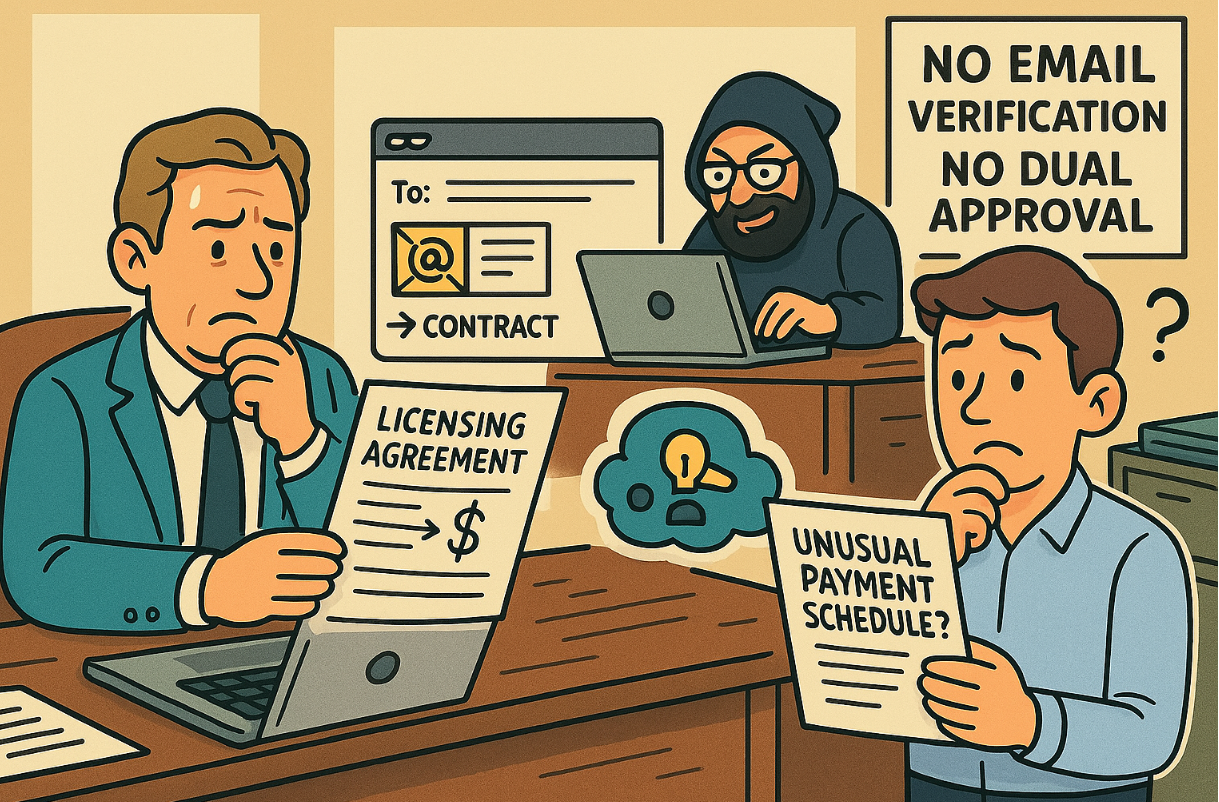Impersonation Approved: Executive Greenlights Fraudulent Licensing Deal
The Challenge
In 2025, Beacon Media Group, a Canadian entertainment network, fell victim to a sophisticated social engineering scheme. An executive approved a fraudulent licensing agreement after receiving what appeared to be legitimate email correspondence from in house legal counsel. The attackers had carefully studied the company’s communication patterns and used a spoofed domain to send realistic contract drafts that closely mimicked genuine templates.
The forged contract contained subtle modifications that authorized a third party payment to an external account controlled by the attackers. The fraud went undetected until a junior financial analyst questioned an unusual payment schedule. By then, partial funds had already been transferred. The incident prompted a full internal review of communication verification and executive approval processes.
Investigators determined that the company lacked email authentication protocols and had no formal process requiring dual verification for high value transactions. Executives relied heavily on email attachments for contract exchanges, making it easy for attackers to exploit trust and routine workflow habits.
Our Solution
We helped Beacon Media implement a comprehensive fraud prevention program beginning with the introduction of secure digital signature workflows and multi person verification for all licensing and financial transactions. Email authentication mechanisms, including SPF, DKIM, and DMARC, were enforced across all corporate domains to prevent spoofing. Executives received personalized phishing simulation training designed to replicate real world attack scenarios and reinforce verification habits.
Legal and finance teams transitioned to a centralized contract management platform with built in approval tracking and digital watermarking. All deal templates were standardized and stored within the secure system to eliminate outdated copies vulnerable to manipulation. We also supported the company in developing a fraud response playbook to guide staff through containment, investigation, and communication in case of future incidents.
The Value
Beacon Media recovered a portion of the lost funds through swift coordination with banking partners and law enforcement. More importantly, the organization regained internal trust and strengthened relationships with its licensing partners by showing transparency and commitment to reform. The newly implemented controls prevented future impersonation attempts and reduced approval times by streamlining verification. Leadership estimated the changes prevented an additional one hundred and seventy five thousand dollars in potential fraud losses.
Implementation Roadmap
1. Require verbal or dual confirmation on all high value licensing agreements.
2. Enable SPF, DKIM, and DMARC authentication across all company domains.
3. Conduct regular phishing simulations for executives and senior staff.
4. Centralize all contract workflows under a secure approval and watermarking system.
5. Publish internal fraud prevention policies and review them quarterly.


